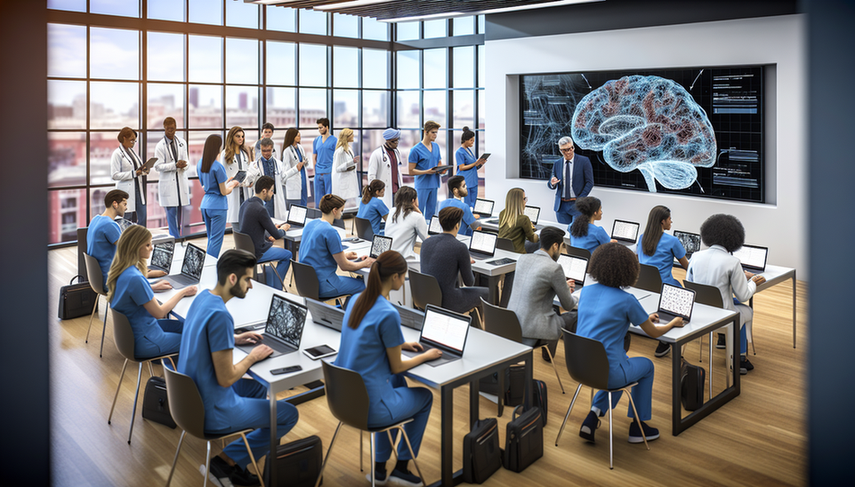Language Models in Medical Education: The Potential of ChatGPT and Intelligent Tutoring Resources

The integration of **language models** in **medical education** is transforming how medical students acquire knowledge and skills. Tools like **ChatGPT** and other **artificial intelligences** (AI) are emerging as valuable educational resources, offering **intelligent tutoring** and personalized learning experiences. However, the adoption of these technologies presents both opportunities and challenges that must be carefully considered.
Diving into the Potential of ChatGPT and Other AIs in Medical Education
**Language models** such as ChatGPT have the potential to serve as virtual assistants in medical education, providing detailed and relevant information, and eventually interactive simulations. A recent study highlights that ChatGPT can enhance student engagement and learning, although further research is needed to confirm these benefits [1]. Additionally, ChatGPT has demonstrated remarkable performance on medical exams, suggesting its utility as a supportive tool in medical education [2].
However, the integration of these technologies is not without challenges. Concerns exist regarding **academic integrity**, data accuracy, and the potential negative impact on learning if not used appropriately [3]. Furthermore, it is crucial to address ethical issues such as privacy, transparency, and algorithmic bias to ensure equitable and ethical outcomes in medical education [4].
Conclusions
The use of **LLMs in education** such as ChatGPT offers significant potential to transform medical education by providing innovative and personalized **educational resources**. Nevertheless, it is essential for medical educators to stay informed about technological advancements and carefully consider the implications for curriculum design, assessment strategies, and teaching methods. Ongoing research and evaluation are necessary to ensure the optimal integration of these AI-based learning tools in medical education [5].
Referencias
- [1] The rise of ChatGPT: Exploring its potential in medical education
- [2] How Does ChatGPT Perform on the United States Medical Licensing Examination (USMLE)?
- [3] Opportunities, challenges, and future directions of large language models, including ChatGPT in medical education
- [4] Unraveling the Ethical Enigma: Artificial Intelligence in Healthcare
- [5] Large Language Models in Medical Education: Opportunities, Challenges, and Future Directions
Created 20/1/2025
